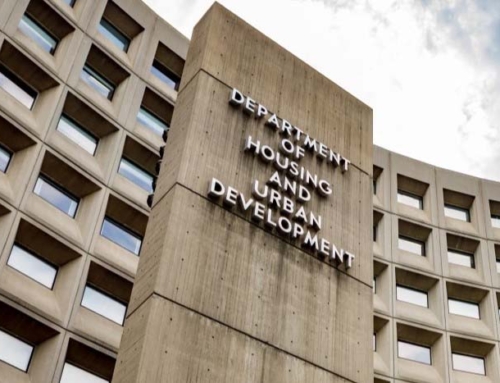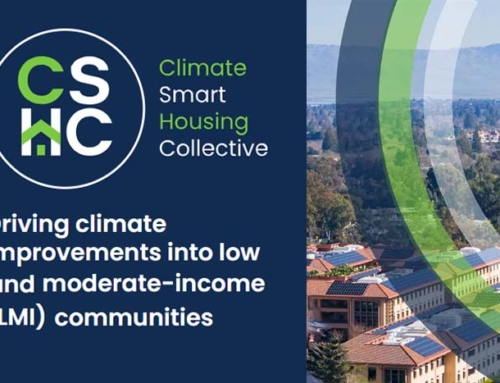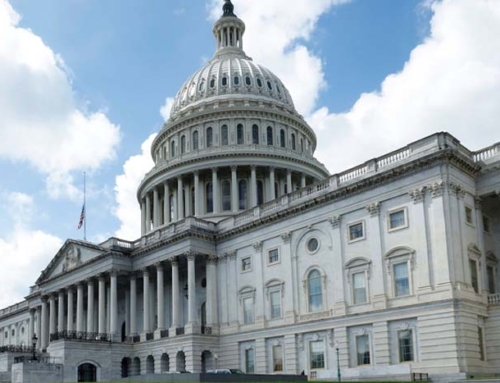Underscoring the intensity of the housing crisis, two plans to address the issue were recently introduced, one from the Harris-Walz presidential campaign and the other from Rep Alexandria Ocasio-Cortez and Sen. Tina Smith.
Since the beginning of their campaign, Vice President Kamala Harris and Minnesota Governor Tim Walz have centered their platform on strengthening the middle class and tackling the challenge of housing affordability, releasing their Housing Plan on August 16, 2024. Not long after, Congresswoman Alexandria Ocasio-Cortez (D-NY) and U.S. Senator Tina Smith (D-MN) introduced a housing bill, the Homes Act of 2024, that focuses on a public social housing option, looking to the federal government to provide housing that the private market has failed to deliver.
Although these plans highlight different approaches to solving the housing crisis, their timeliness reflects a new sense of urgency and attention in Washington, and both plans reflect elements of Vienna’s social housing program.
The Harris-Walz plan highlights housing as a cornerstone of their economic agenda, aiming to end the housing supply shortage within four years by partnering with industry and eliminating barriers to new housing development at state and local levels. The plan focuses on the following strategies:
- Expand Low-Income Housing Tax Credit
The Harris Walz housing plan advocates for a “historic expansion” of Low-Income Housing Tax Credits (LIHTC) to support the construction of affordable rental housing. LIHTC has historically had bipartisan support and is one of the most used tools to increase the affordable housing supply in the US. This expanded investment aligns with the goals of the bipartisan Affordable Housing Credit Improvement Act (AHCIA; 1557 and H.R. 3238) and is likely to be included in a 2025 tax package. - Tax Incentives for Starter Homes
The Harris-Walz plan has endorsed the Neighborhood Homes Investment Act (S.657), a proposed new federal tax credit that would build and rehabilitate homes for lower- and middle-income homeowners. The plan also creates a $40 billion innovation fund, doubling the Act’s existing $20 billion proposal, to support housing development. Developers and local governments can use this fund for “rental and housing solutions that are affordable—with one condition: they must show they will deliver results.” - Expanding Down Payment Assistance for First-Time Homebuyers
In a significant move to support first-time homebuyers, the Harris-Walz plan offers $25,000 in down payment assistance, mainly targeting low-income families and communities of color. This initiative builds on previous efforts but significantly expands the eligibility criteria beyond first-generation homebuyers. - Expanding Affordable Rental Housing and Curbing Corporate Landlords
Recognizing the growing dominance of corporate landlords, rent-setting data firms, and risk of artificially surging rent prices, the Harris-Walz plan includes measures to expand rental assistance, enforce fair housing laws, and limit corporate ownership of single-family homes. By removing tax incentives for Wall Street investors on Wall Street who have increasingly driven up prices, this aims to restore balance in the housing market and protect tenants. - Updating Zoning Regulations and Utilizing Public Land
The Harris-Walz housing plan proposes changes to zoning laws to make it easier to build new homes by streamlining and modernizing the permitting and zoning processes. One key element is reducing restrictive zoning regulations that often limit the construction of new housing in high-demand areas. These modern zoning policies promote higher-density housing, especially near public transportation. Additionally, the plan encourages the repurposing of underused federal lands for affordable housing projects, aiming to speed up development and increase housing supply.
While the Harris-Walz plan focuses on leveraging both public and private sectors in addressing the housing crisis, the HOMES Act, presented by Rep. Alexandria Ocasio-Cortez and Sen. Tina Smith, puts forward a public option for housing, establishing a national Housing Development Authority to acquire and develop permanently affordable social housing. The Authority would finance, operate, maintain, modernize, and improve acquired property at a range of income levels, streamline construction procedures across various levels of government, and facilitate supportive services programs. The Authority would be financed through $30B in annual appropriations, combined with a revolving loan fund to recoup and reinvest funds back into housing. This is substantially larger than the existing public housing budget: the budget for public housing operating costs in FY 2024 was $5.12B, while the budget for public housing capital needs in FY 2024 was $3.41B.
Both plans reflect growing conversations around the need to take bold action to address the country’s housing crisis by including elements from Vienna’s social housing model. The Harriz-Walz’s repurposing of public lands, as well as the HOMES Act’s focus on acquiring real estate, recalls Vienna’s land bank, which enables lower construction costs and permanent affordability. The HOMES Act additionally aims to ensure that social housing is financially accessible to families at a range of income levels, mirroring Vienna’s mixed-income model. As these plans continue to evolve and gain support, the Global Policy Leadership Academy team looks forward to educating more policymakers about inspiring global housing models. Visit GPLA’s website to learn more about its Social Housing Field Study or contact [email protected].
© LeSar Holdings/LeSar Development Consultants. All Rights Reserved. Please be advised that any republishing of copyrighted material provided by our organization, in whole or in part, requires prior written authorization. For permission, please reach out to [email protected]. We appreciate your understanding and compliance in upholding copyright laws.





















